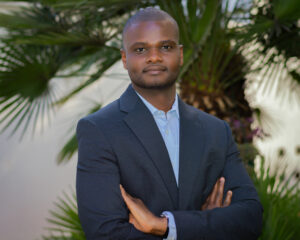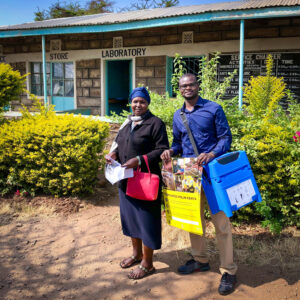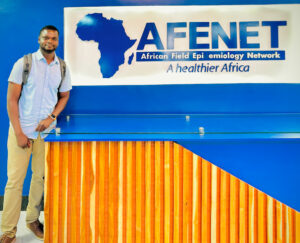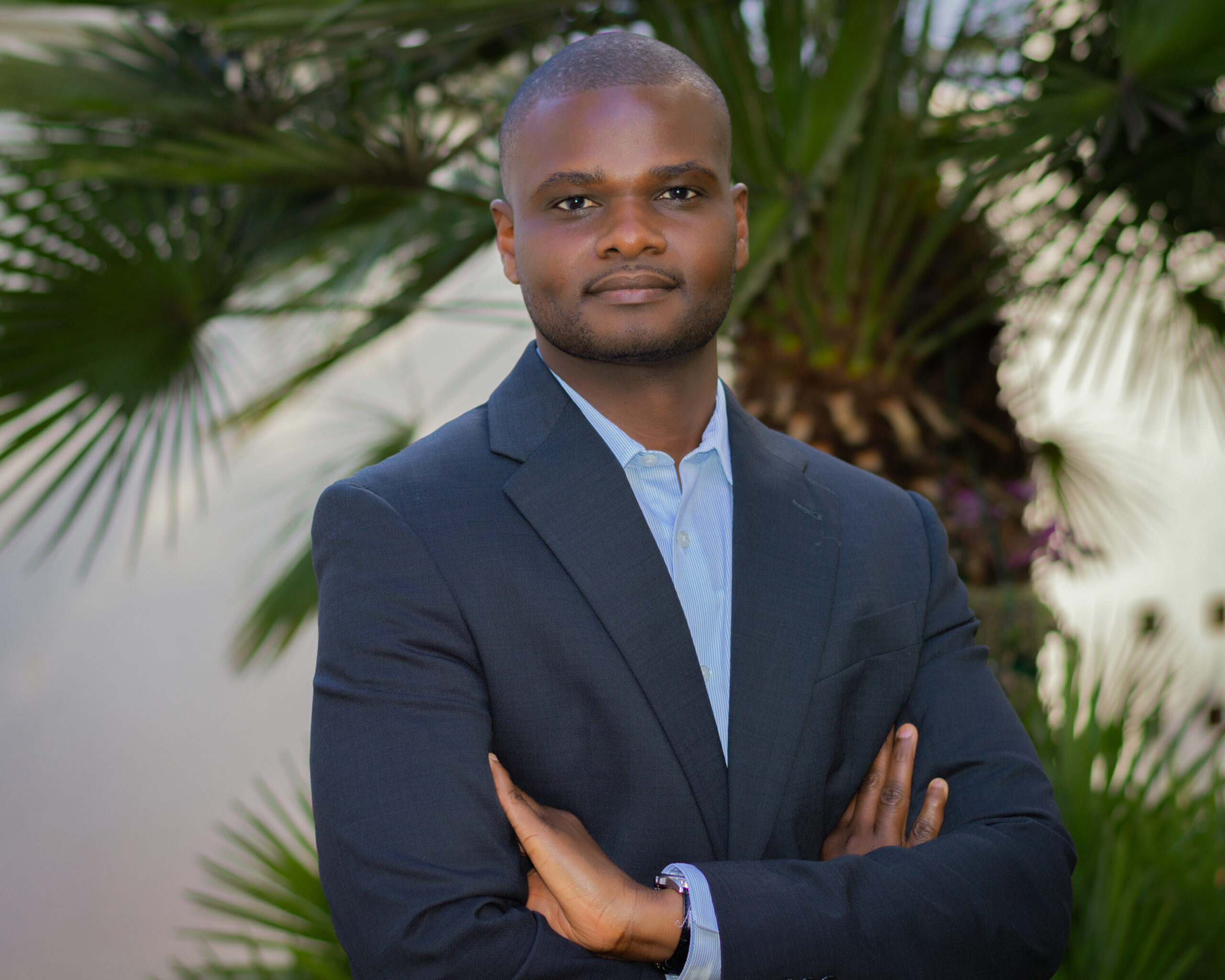As a kid growing up outside of Atlanta, Gibril Njie (MPH ’11, DrPH ’21) was a lot of things—curious, bookish, a math lover, but also a talented athlete and sports geek. He aspired to be a dentist.
 Then life took him down another path that led to where he is now, a senior epidemiologist with the Centers for Disease Control and Prevention, leading the Atlanta-based Global Tobacco Surveillance System from Zimbabwe.
Then life took him down another path that led to where he is now, a senior epidemiologist with the Centers for Disease Control and Prevention, leading the Atlanta-based Global Tobacco Surveillance System from Zimbabwe.
It’s enough to give anyone whiplash, but Gibril has always rolled with the punches. Flexibility, he says, is key to a successful career in public health. “That’s the beauty of public health. Most of the skills you’re going to learn in public health are transferable,” he said.
In his current role, Gibril needs to be ready to shift gears and respond to the agency priorities while supporting low- and middle-income countries to monitor the global tobacco epidemic. His team provides technical assistance in implementing surveys to assess global tobacco use prevalence and other tobacco use indicators among youth and adults.
“Our team plays a critical role in assisting Parties to the World Health Organization Framework Convention on Tobacco Control fulfill one of the key obligations of the treaty, which is establish and maintain a tobacco surveillance program,” he said.
Sinking Teeth Into Population Health
Gibril got his first taste of public health as a senior biology major. He was drawn to the population-level study of health and decided to pursue an MPH at UGA. After graduating in 2011, he still pictured himself going on to dental school but began an ORISE Fellowship and has served at the CDC ever since.
Gibril entered UGA’s DrPH program in 2019, drawn back to the chance to work with economic evaluation expert Phaedra Corso. He had been working to update the CDC’s guidelines on tuberculosis screening, testing and treatment of U.S. health care workers. His dissertation focused on the cost effectiveness of that screening, testing and treatment.
In addition to the seasoned professionals who taught his courses, Gibril was struck by the diversity of the students in the cohort.
“Our cohort had folks that were in nonprofit leadership. We had people working at Children’s Healthcare of Atlanta. We had folks working for the state health department. We had folks at CDC. And so it was quite a diverse group. And when you have that diversity, it allows you to see things from a different perspective,” he said.

Njie at the Statistical, Economic and Social Research and Training Centers for Islamic Countries (SESRIC) headquarters in Ankara, Turkey. He was there to promote the integration of the Tobacco Questions for Surveys of Youth among member countries.
Shortly before graduating, the position Gibril holds now became available. The role was a welcome return to global health for Gibril and new flexibility afforded an opportunity for his family to fulfill a dream of living and working overseas when his wife, who is a HIV prevention expert, took a job at the CDC country office in Zimbabwe.
“The greatest joy has been seeing my daughter assimilate into the Zimbabwe culture. She’s learning the language. She goes to a school that’s diverse, with families from embassies all over the world. So seeing that has been an absolute joy. I think when we made the decision to go overseas, that’s what we envisioned. I think so far, so good,” he said.

Njie and a local nurse participating in a polio outbreak response in Kenya
Mentorship, Given and Received
Gibril still keeps in touch with his DrPH cohort and program coordinator Adam Chen.
“I knew him prior to going to UGA, but I think having him as my advisor was one of the best things I did while I was at UGA,” he said. “He always checks in. He’s always offering me opportunities within the university. He’ll send me an email and say, ‘Hey, are you interested in potentially pursuing this opportunity? Are you interested in giving this talk?’ So, I appreciate that.”
He also credits the support he received from Juliet Sekandi, Jean O’Connor, Donald Llyod and the late Joel Lee for shaping him as a professional.
“Without some of these really amazing professors who are very passionate about public health, who really care about their students, I don’t think some of us will be where we are today,” he said.
He carries forward that desire to support public health students through the UGA Mentor Program. And what does he always tell his mentees? Be flexible.
“In life, things are not always going to go as planned. Students come into public health with this idea of a particular disease they want to work on, and things may not work out to where they’re able to work on that particular disease. But if they’re flexible, if they’re patient enough to learn new skills, they can leverage those skills to get to where they want to get to.”
Njie was named to the UGA Alumni Association’s 40 under 40 class of 2024, recognizing his outstanding accomplishments and career.
Dr. Njie contributed to this article in his personal capacity. The views expressed are his own and do not necessarily represent the views of the Centers for Disease Control and Prevention or the United States government.

Njie at the African Field Epidemiology Network (AFENET) headquarters in Kampala, Uganda. He was there to participate in a training of field staff who would be conducting the Global Adult Tobacco Survey.






